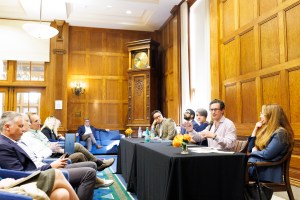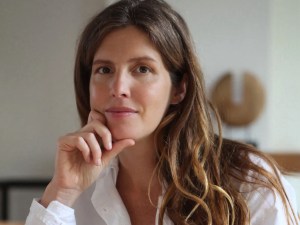Leon Eisenberg to receive Juan Jose Lopes Ibor Award
Professor Leon Eisenberg, MD, will receive the Juan José López Ibor Award from the World Psychiatric Association on September 23, 2008, in Prague, Czech Republic. The Award, named after Juan José López Ibor – one of the most important leaders of the world psychiatry in the second half of the 20th Century – was created by The Juan José López-Ibor Foundation in order to recognize and honour individuals or institutions that made significant scientific contributions leading to a better understanding of psychiatric diseases while being actively engaged in activities enhancing the human dignity of patients and their families.
The Award recognizes initiatives in favor of the human dignity of those who suffer from mental disorders carried out from a scientific perspective. Bridging rational thinking and respect toward those who suffer mental illnesses is the goal of the award. The Award, which will be granted every two years, will reward initiatives of research, study, promotion, and communication carried out by individuals or institutions.
It consists of a diploma, a token, and 40,000 Euros for the awardee and for an institution that the awardee will freely choose, split into equal parts, and honour individuals or institutions that made significant scientific contributions leading to a better understanding of psychiatric diseases while being actively engaged in activities enhancing the human dignity of patients and their families.
Leon Eisenberg, the Presley Professor of Social Medicine, Emeritus, Harvard Medical School’s Department of Global Health and Social Medicine and Professor of Psychiatry, has been Professor of Child Psychiatry at Johns Hopkins Hospital (1961-1967) and Harvard (Massachusetts General Hospital 1967 -1993). In 1980, he became Chair of the Department of Social Medicine and Health Policy, a position that he held until 1993.
He has made major scientific contributions in many fields including those of child and social psychiatry, of public health, psychopharmacology and social medicine In the ‘40s, Leon Eisenberg was one of the very first psychiatrists interested in child psychiatry, and especially autism, being one of the students of Leo Kanner. Psychoanalysis was then the mainstream in American academic psychiatry, which he strongly challenged, aghast at the way in which parents of children suffering from autism were stigmatized and accused of being the source of the illness of their children. He was also one of the very first child psychiatrists to be interested in the new field of psychopharmacology, introducing randomized clinical trials of medications used to treat children with ADHD.
Eisenberg has always put the importance of genetic factors high on the research and practice agenda, without ever neglecting the importance of their interaction with the environment. This is how he found himself more and more involved in research, teaching, advocating the importance of the bio-psycho-social model in psychiatry. As a logical result, he became chairman of the Department of Social Medicine, working on mental health in lowest income countries and in lowest income populations in developed countries. Famous former students of Leon Eisenberg, including Arthur Kleinman, Paul Farmer, Jim Kim, and Felton Earls, continue his work started in this respect. The results of this work have also influenced important international Organizations: most probably the famous statement about the importance of mental health made by Boutros Boutros Galli, the Secretary General of the United Nations in 1996, would had never been pronounced if Leon Eisenberg had not set the pace for the development of a new agenda in mental health care.
One of the main fights of Leon Eisenberg was in the field of Human Rights. He fought to allow minority students, especially African Americans, to join Harvard Medical School, by creating an affirmative action program in 1968, which he sustained by becoming Chairman of the Admission Committee from 1969 to 1974. He is also (with his wife Carola Eisenberg) an active member of the NGO “Physicians for Human Rights”, which is a 1997 Nobel Peace Prize co-recipient.
The Award will consist of a diploma, a sculpture of José Luis Sánchez, specially designed for the award, and 40.000 Euros to be split between the awarded and an institution chosen by him. The organization he has chosen is Physicians for Human Rights.





